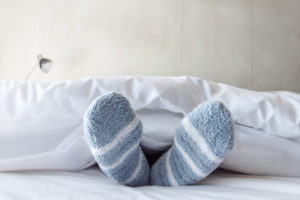Snooze or Lose!
Today’s contribution is from Ryan Kivlin, B.S, M.S, CSCS, Wellness Associate at Barbara Cox Fitness Center

Sleep. It's an essential factor for recovering from your day whether you are physically active or not. The human body reacts to various stimuli throughout the day which affects the nervous system. Things like exposure to fluorescent light, constant sound or even driving to work are all stressors that affect your nervous system. Adding exercise to those things further stresses the body’s neural pathway and tissues. Even though exercise can help cope with some of the everyday stresses of life, exercise ultimately takes a toll on the nervous system. Sleep is an essential factor in recovering from your day to recharge and repair your body’s tissues and neural pathway.
The state of the human body changes while we sleep. Body temperature, heart rate, and respiration rate fluctuate to allow for various recovery processes to occur. A variety of hormones are released to help repair damaged tissues and allow your body to grow. Additionally, the brain will remain active and cleanse the neural pathways of toxins. This usually occurs while we dream. These processes allow you to feel recharged and ready for all the stresses that the next day may bring.
The National Sleep Foundation recommends sleeping between 7 to 10 hours per night,for the majority of the population, to improve overall health. Conversely, not getting enough sleep can negatively affect the human body. The body will not effectively go through the proper recovery cycles of sleep which can inhibit positive physical adaptation.
To optimize your sleep, the National Sleep Foundation suggests not consuming caffeinated beverages or alcohol prior to sleep. Additionally, keeping your room quiet, dark, and at a comfortable temperature can improve your sleeping patterns.
National Sleep Foundation, “Inside your bedroom.” NationalSleepFoundation.com, sleepfoundation.org/bedroom/
